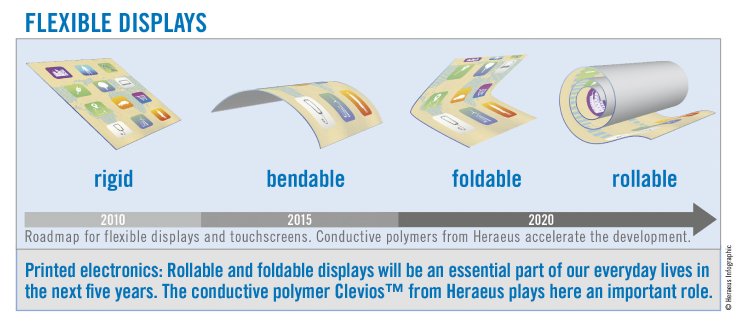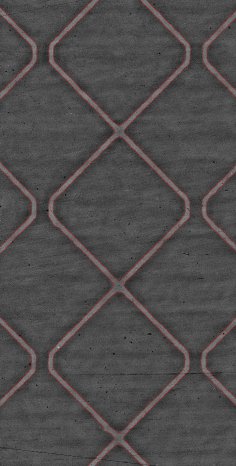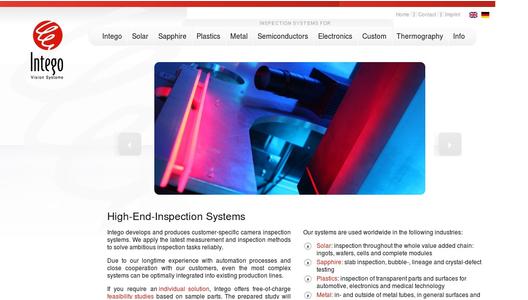- Customized tool for the inspection and quality control of the sensor patterning process for production environment
- Heraeus Clevios conductive polymers are key materials for foldable touch sensors of flexible smartphones and tablets
At this year Touch Taiwan from August 24-26 Heraeus launches a new touch panel process to pattern Clevios conductive polymer films by DFR (dry-film resist) photolithography. It enables high resolution patterns required for advanced touch sensor designs of flexible smartphones and tablets. Heraeus worked together with Intego on a new inspection method to visualize the invisible patterns of the Clevios sensor films. "With Intego, we found an excellent partner to offer a solution that enables our customers to accelerate the adoption of Clevios touch technology in mass production for flexible touch displays", says Dr. Armin Sautter, Head of Technical Service Display at Heraeus. High resolution patterning of touch sensors is a prerequisite for advanced touch panels, especially for flexible and foldable touch displays. Dr. Thomas Wagner, CEO at Intego GmbH, emphazises "This is an important milestone, we are now able to offer a customized tool and a process for the inspection and quality control of the sensor patterning process for production environment." A small scale demo tool will be shown at the Heraeus booth Taipei World Trade Center / Nangang Exhibition Hall 4F / N1029.
Patterned ITO films require additional optical compensation layers to hide the visible patterns in the touch panel. In contrast, both fine and wide Clevios patterns are already completely invisible after touch sensor production. No additional optical compensation layers are required in the touch panel process, offering customers cost benefits as well as process simplifications. Clevios conductive polymers are key materials for foldable touch sensors that will be used in the coming generations of flexible smartphones and tablets. Clevios coated films can be folded more than 300.000 times at a radius as low as 1 mm without degradation of the electro-optical properties.
Intego GmbH, located in Erlangen, Germany, develops inspection systems for automated production lines used in a number of industries including glass/sapphire, solar, LED/OLED, electronics, automotive, plastics and medical technologies. (www.intego.de/en)




